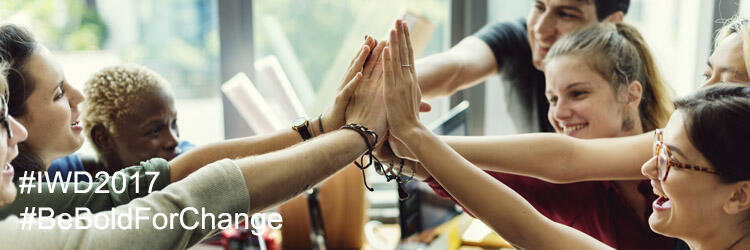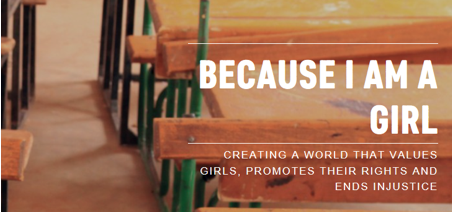
Kate Hargreaves, DTMH January 2017

This blog comes a little under a month after the celebration of International Women’s Day on 8th March. I’m sure for many (including me, until a few years ago) this passes largely unnoticed along with ‘International Nougat Day’ (apparently that’s today) and ‘International Ferret Day’ (that’s next week!). And that is understandable; we lead busy and occupied lives, and I’ve heard the argument more than once that IWD is no longer needed – we’ve achieved equality, right?
Well, actually no. The theme of this year’s IWD was ‘be bold for change’ with a focus on not only making changes in your own life, but being an advocate for those less represented or less included than yourself. I think this is very pertinent for a group of students, many of whom are studying in preparation of going to work in low and middle income countries. We may be in the wonderful position of being able to advocate for the most poverty bound, under resourced, discriminated against and excluded groups of people in the world.
Plan UK have a long running ‘because I am a girl’ campaign which aims to empower girls all over the world to achieve their right to education. This is based on the knowledge that a young woman who is educated is more likely to have a life free from violence, a later marriage and first child, achieve economic security and lead a healthier life. And there is a long way to go.
- 15 million girls will never have the opportunity to learn to read and write
- 15 million girls marry before the age of 18 each year
- Up to 95% of girls in cities feel unsafe
- Globally maternal mortality is a leading cause of death in girls aged 14-19 years
- 200 million girls and women live with the consequences of FGM
- 90% of countries have at least 1 law that restricts economic equity for women
A huge majority of these injustices occur in middle and low income countries. I was born, brought up, live and work in the UK, I have had equal access to education, work and equal pay. I would argue that this gender parity I have experienced is not a privilege, it is a right. A right that is being denied to millions of women and girls across the world. The privilege we have is that by being bold for change we might be able to make small but measurable progress towards the spread of gender parity. Pro-equality policies and actions are anti-poverty. An educated young woman is not only healthier, less likely to be a victim of violence, less likely to marry early but invests a much higher proportion of her income back into her family and community than men, and is much more likely to promote the equal education of her children. And so create a positive cycle. I think that is something to advocate for and inspires being bold for change.